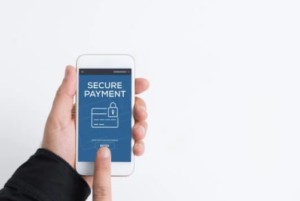Millions of people have made the transition from cash to credit and debit cards over the years. In fact, cash has nearly been eliminated at this point though there are still a few exceptions to this new evolving standard. In addition, online shopping has largely replaced in-person purchases over the last three decades.
Making Digital Payments Possible and Practical
As part of the growing shopping and bill-payment trends, digital platforms are becoming increasingly important. Without them, debit and credit card transactions wouldn’t be possible. Dozens of digital payment platforms have become available over the years, but not all are created equally.
For merchants who wish to give themselves and their customers a unique payment experience, Xpress-pay is rising to the top of the popularity polls. Our online payment solutions offer retailers, service providers, and other businesses substantial freedom in terms of payment options. Xpress-pay also offers a variety of affordable and secure payment solutions to allow merchants to quickly receive payments from a broader range of sources.
Delving into the World of Digital Payments
According to recent reports, more than 82% of transactions are now digital. That is expected to surge during the years to come. Despite the ever-growing prevalence of digital payments, most people don’t fully understand how the process works.
Business owners and shoppers alike simply know they can insert, swipe, tap, or enter their card information into a payment portal or point-of-sale terminal. From there, the transaction is either approved or declined. Approval is good; denial is bad. We’ll take a closer look at transaction declination later in this post. For now, though, let’s delve a bit deeper into the overall process of a successful digital transaction.

Consumers and Merchants
First off, you have the consumer, who is the person making a purchase or paying a bill. Obviously, you, as the merchant, are also part of the process as the person or company accepting payment for products or services. Your business and customers are only part of the process, though.
Payment Gateways and Platforms
Payment platforms and gateways are also integral to the process. They’re the devices or applications that pave the way for digital payments. They convey information between the cardholder, the payment solution, the merchant, and other entities involved. Payment processors further expedite the payment process. They serve as the intermediaries for payment gateways, merchants, and consumers.
Banks
Banks are vital participants as well. Issuing banks provide the actual funds which are routed to the merchant’s bank account. Before doing so, they check the consumer’s card and limit. They chose to accept or decline the transaction.
Card Networks
Beneath it all are the card networks, the companies that provide credit and debit cards. Two of the most well known are Visa and Mastercard though others also exist. Though cards are issued by a variety of financial institutions, virtually all of them contribute to the entire card network. In short, people’s debit and credit cards come from one of the major card brands regardless of which bank issues the card.
How Digital Payment Processing Works
Now that we’ve discussed all the components of a standard digital transaction, we can explore how the entire process works. Basically, the series of events starts with you in marketing products or services to the public. Consumers then visit your business in person or online.
Once their buying experience is complete, they use their credit or debit cards to make a purchase. They enter their card information into your payment gateway whether it be a POS terminal or an online or mobile application. From there, the transaction travels to a payment processor, gets routed through the appropriate card network, and is forwarded to the necessary issuing bank.

Next, the issuing bank authorizes the payment. Authorization is then returned through the card network and payment processor. The payment processor sends the authorization back to your payment gateway. At that point, the money for the transaction is scheduled to be transferred to the merchant’s (your) bank account.
This process sounds rather complicated, doesn’t it? Numerous factors have come together effortlessly to complete the transaction. Keep in mind, all of this occurs in just the amount of time it takes a consumer to initiate the payment, and for your payment gateway to approve or decline. The entire process appears to be instantaneous.
Why Are Some Transactions Declined?
As you’re probably aware, not all payments are successful. Consumers’ transactions are sometimes rejected. While insufficient funds is a common issue, it’s certainly not the only reason a transaction may be declined. Other problems can certainly enter the mix.
For one, a transaction may be flagged as potential fraud. Banks and credit card issuers often monitor cardholders’ activities and establish a baseline for common purchases. They keep track of where consumers most often shop and approximately how much they spend per transaction.
If an accountholder’s card is used at an unusual store or an abnormally large purchase is made, the issuing bank may stop the process and declines the transaction. The issuing bank then contacts the card holder for further investigation. If the cardholder confirms that the purchase is legitimate, he or she may then retry the transaction.
From another perspective, the problem could lie with the technology or intermediaries involved in the process. POS terminals and other payment gateways aren’t infallible. Breakdowns in communication between involved parties could cause a decline notice. There are numerous other reasons why a transaction could fail.
Recognizing the Importance of Reliable Digital Payment Tools
Although digital transactions are gaining momentum, some businesses and consumers remain apprehensive about technologically advanced payment options. This is especially true for those who may have had a bad experience in the past. Having reliable digital payment tools can generate numerous benefits for businesses as well as their customers.
Appealing to More Consumers
Businesses that have reliable digital payment solutions have been proven to attract more customers. After all, if you offer a broad range of payment options, more people are going to shop with you. In the event your system isn’t compatible with the form of payment consumers want to use, they’ll take their business elsewhere.

Boosting Profits
Having the right digital payment tools in place will also boost your profits. Part of this comes from being able to accommodate a broader clientele both in-person and online. Additionally, research has proven that customers spend more money when using digital payments. In fact, they spend an average of 80% more through digital means.
Creating a Better Customer Experience
Two of the reasons so many people choose to use digital payments are convenience and speed. If your payment method presents obstacles at every turn, people aren’t going to purchase from you.
On the other hand, a smooth, seamless payment process will have a beneficial effect. It will encourage shoppers to shop with confidence. It will also provide another reason to become repeat customers. Since people regular speak to others, it will also enhance your reputation. Using a dependable payment platform to improve the customer experience can work wonders for your business.
Reducing Expenses
Several digital payment solutions are available to businesses these days. Each one offers its own advantages, but many are accompanied by lofty fees. Charges can be generated with each phase of the digital payment process. If you’re not careful, those can easily consume your profits. With the right platform, you’ll be spared from excessive fees.

Enhanced Security
While cybercrime is a factor online, the payment industry and its network of certified providers has an impressive arsenal of countermeasures. Although hackers aren’t overly choosy when it comes to their victims, they tend to be attracted to easy targets. Having a secure platform deters would-be thieves. That gives you and your customers greater peace of mind and helps to prevent losses.
Those are some of the key reasons a reliable payment platform can help your business. It’s also important to mention that less dependable solutions can lead to significant downtime. That, alone, could drive away customers and cost your businesses a great deal of money.
Using Digital Payment Processing to Bolster Your Business
Businesses and consumers are going digital these days, and that trend is only going to grow during the coming years. Businesses that are truly prepared for the future have secure digital payment solutions in place to help them enjoy continued success. Numerous solutions are at your disposal, but not all of them are viable and many do not operate at the highest level of industry security certification (PCI DSS Level One). Xpress-pay is dedicated to providing affordable, convenient, secure, and reliable digital payment solutions that cater to the needs of today’s businesses and the expectations of modern consumers.

